Azerbaijan becomes a new battlefield for Iran-Israel rivalry
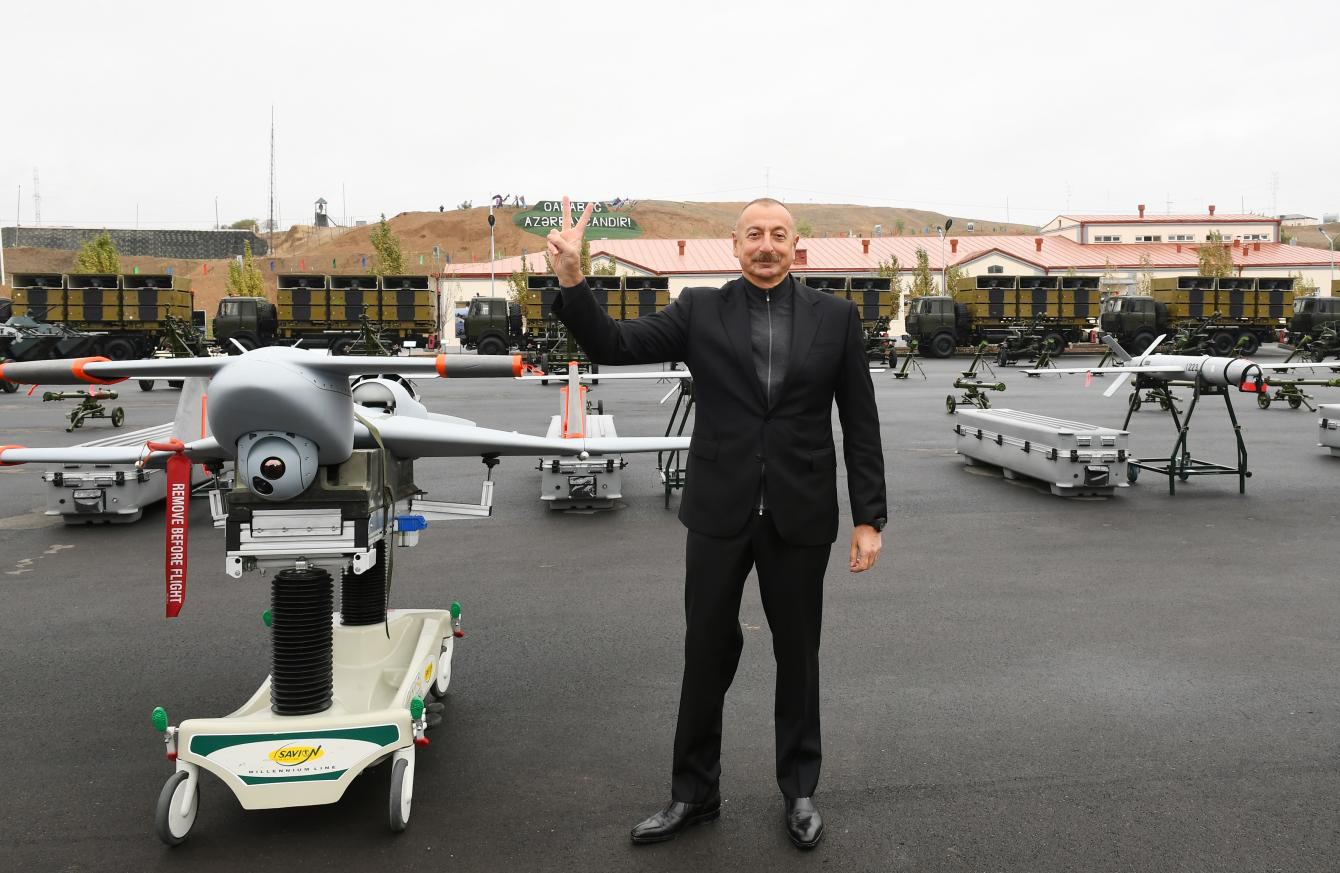
In recent months, Armenia and Azerbaijan have been involved in intense negotiations to sign a peace agreement with discussions in Brussels, Washington, DC and Sochi. The existence of different formats provided some flexibility for the sides. As mediators are increasingly at odds with each other, Armenia-Azerbaijan relations may become part of an ongoing Russia-West confrontation, which may derail the process. While experts and pundits are exploring ways to avoid that scenario, the South Caucasus is slowly moving toward becoming a battlefield for another rivalry, this time between Iran and Israel.
Many may wonder what these relations have in common with Armenia, Azerbaijan and Nagorno Karabakh. In the 1990s and 2000s, there was little, if anything, uniting the Karabakh conflict with the Iran-Israel rivalry. The situation started to change around 2010 when Azerbaijan launched its strategic defense cooperation with Israel and began buying billions of US dollars worth of armaments from Israel, including loitering munitions, advanced anti-tank missiles and reconnaissance drones. Israeli weapons proved helpful during the April 2016 Four Day War, while their large-scale deployment during the 2020 Artsakh War played a significant role in securing Azerbaijani military victory. Azerbaijan-Israel cooperation has gone well beyond defense cooperation. Azerbaijan allowed Israel to use its territory for different anti-Iranian activities, including recruiting Iranian citizens who visited Azerbaijan for different reasons. Tehran was always looking cautiously at the growing Azerbaijan-Israel cooperation. Iran was concerned with transforming Azerbaijan into the launchpad of anti-Iranian activities, including the possible spread of separatist ideas among a multi-million Azeri-speaking population along the Iran-Azerbaijan border. In this context, the 130-kilometer Nagorno Karabakh Republic-Iran border aligned with Iranian national interests. Azerbaijan took control of the Nagorno Karabakh-Iran border after the 2020 war in Nagorno Karabakh. Iran officially welcomed the Azerbaijani victory.
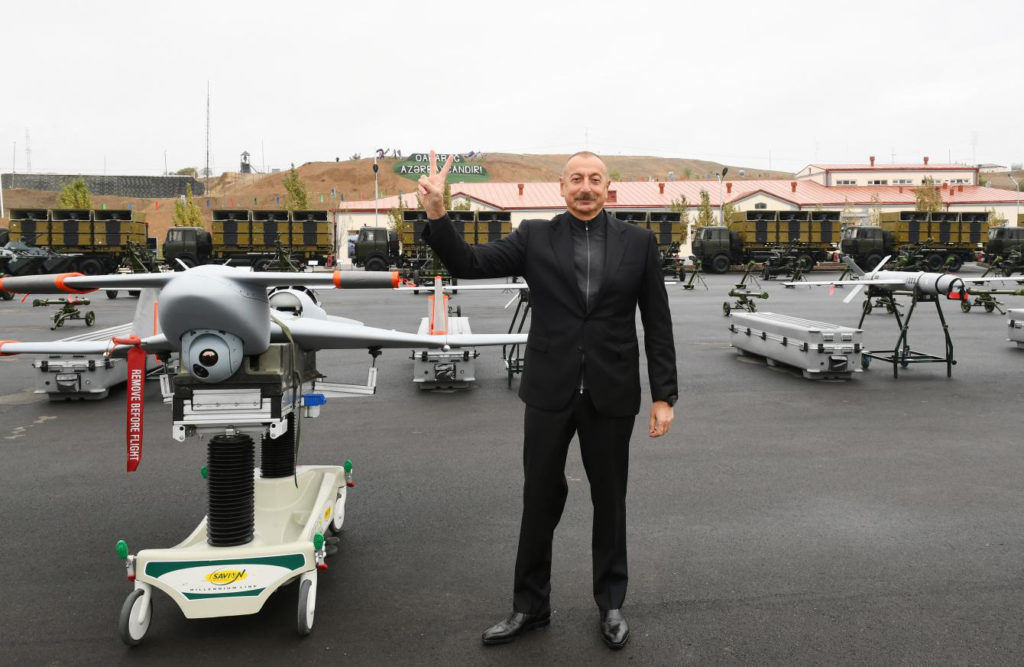
Tehran has always supported the territorial integrity of all regional states and has never publicly aired any doubts about Karabakh legally being a part of Azerbaijan. However, the growing Azerbaijan-Israel cooperation after the 2020 war has raised suspicions in Iran. Azerbaijan continued its large-scale purchases of weapons from Israel, and high-level Israeli military delegations continued to visit Azerbaijan. Iranians were asking themselves why Azerbaijan still needed Israeli weapons and bilateral defense cooperation with Israel after the military victory over Armenia. If Azerbaijan were to explain these activities before the 2020 war with the necessity to increase its military capabilities to defeat Armenia, after November 2020, this argument does not seem reliable. The opening of two “civil airports” in the territories taken by Azerbaijan during the 2020 war in the close vicinity of the Azerbaijan-Iran border raised additional questions for Iran. Given the low population in these territories, the only reasonable explanation for opening these two airports is the possibility of using them as military airports. Their location signaled that Armenia was not the only target for them.
As negotiations to restore the Iranian nuclear deal reached a deadlock and Israeli officials started publicly circulating the possibility of Israeli strikes against Iran’s nuclear sites, Azerbaijan-Israel military cooperation started to threaten Iran’s vital national interests. Not surprisingly, Iran launched several large-scale drills along its border with Azerbaijan in October 2021 and again late last month.
On November 2, 2022, Azerbaijan arrested 19 citizens it accused of being trained and funded by Iran to spy for its intelligence services. On November 7, the Iranian intelligence ministry stated that an Azerbaijani citizen was the main organizer and coordinator of the October 26, 2022 terror attack in the Shah Cheragh mosque in the Iranian Shiraz province. Days later, the Iranian Foreign Ministry summoned the ambassador of Azerbaijan to Tehran to protest the propaganda campaign waged by the country’s officials and media against Iran. On November 14, five more citizens of Azerbaijan were arrested for high treason for working with Iranian intelligence. As Iranian authorities currently grapple with months-long protests and nationwide demonstrations, the Iranian government views with concern the growing influence of Israel in Azerbaijan. They are primarily worried about the potential use by the Israeli military and other services of the territories located along the Azerbaijan-Iran border as a serious threat to the security and stability of Iran.
On November 11, 2022, during his speech at the 9th Summit of the Organization of Turkic States, President Ilham Aliyev stated that most of the 40 million Azerbaijanis living outside Azerbaijan were deprived of opportunities to study in their mother tongue. It was a thinly veiled hint toward Iran and only added concerns in Iran that Azerbaijan may be used to sow instability in the northern parts of the country.
The transformation of Azerbaijan into another Iran-Israel battlefield will negatively impact the already complicated Azerbaijan-Armenia negotiation process. The South Caucasus risks becoming embroiled in different conflicts, which only increases the involvement of external actors in regional geopolitics. Azerbaijan probably did not act smartly by bringing outside countries, such as Israel and Pakistan, into the region to support Baku in its rivalry with Armenia. However, the process has been launched, and repercussions are already here. Armenia should be cautious not to be seen as overtly anti-Israeli or pro-Iranian.
Armenia should also signal to Israel that Tehran’s current position in the South Caucasus, arguing for the inviolability of state borders, contributes to regional stability. All understand that Israel has the full right to supply weapons to whatever state it wants. However, as Azerbaijan uses Israeli weapons to occupy Armenian territories and kill Armenian soldiers and civilians, Armenia has a right to cooperate with whatever state it wants, including Iran, to fight back against Azerbaijan.



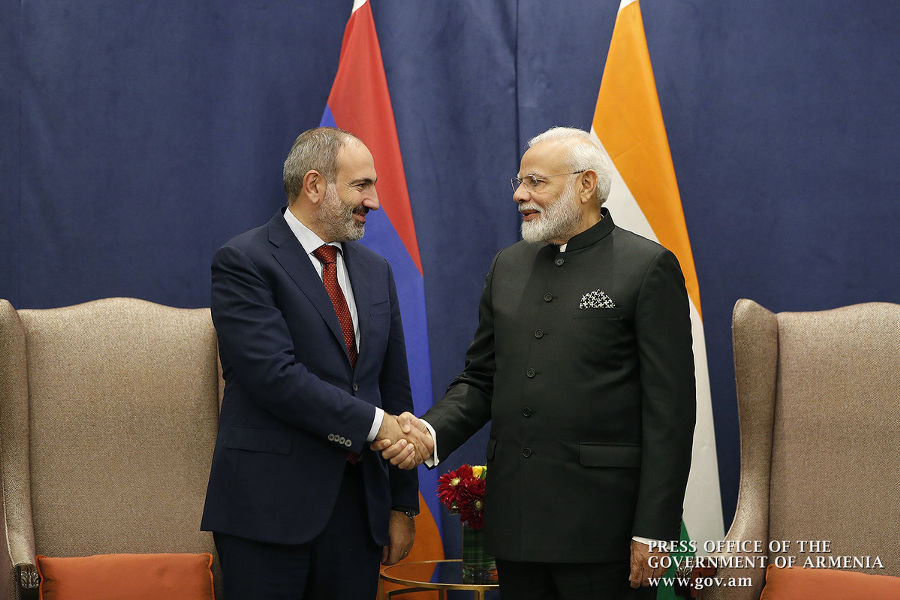
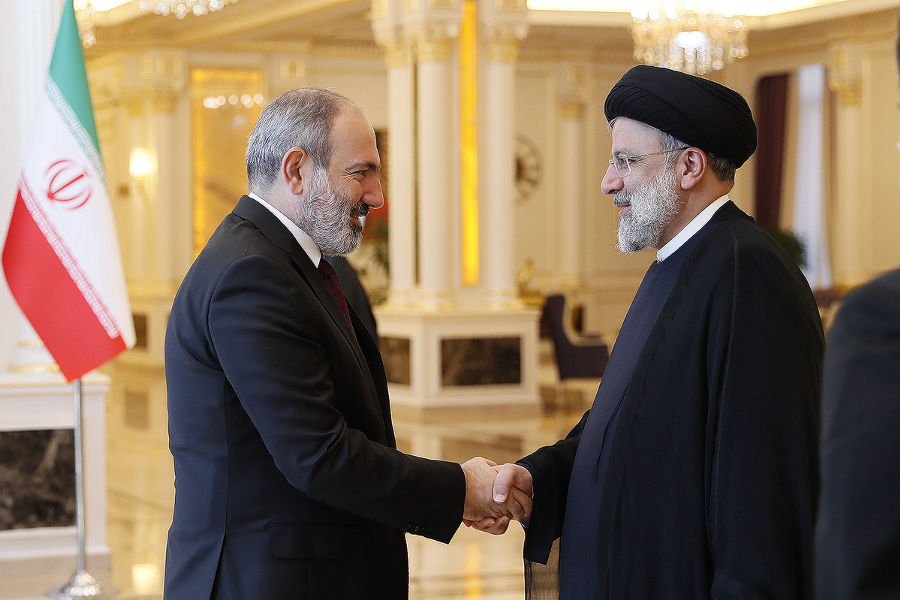
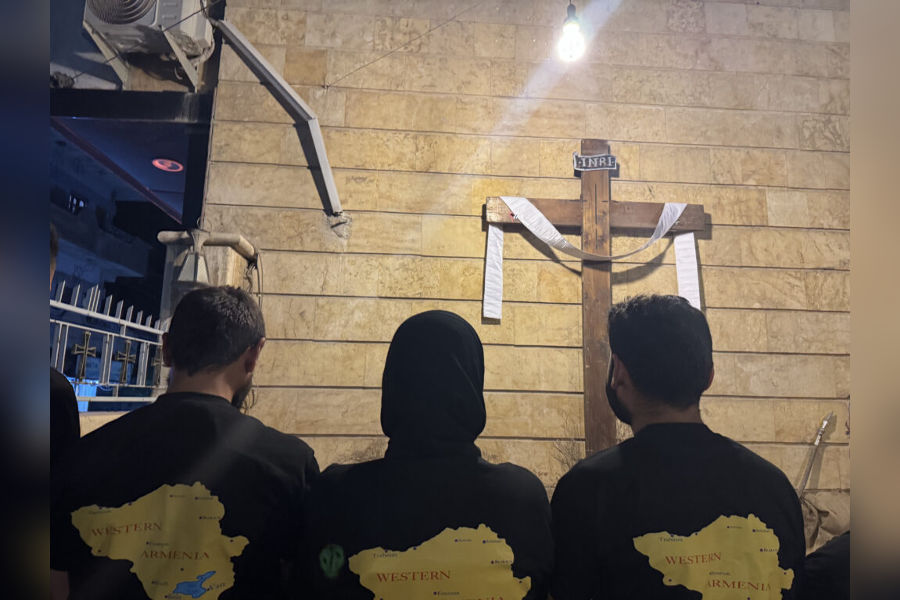

Israel, a country formed from by a diaspora after a ruthless genocide, ironically refuses to recognize the Armenian, Greek, or Assyrian genocides as even existing. And they supply weapons to further kill Armenians, even outside of Artsakh and on the territory of Armenia proper, in total violation of any principle of sovereignty or international relations.
Iran will always be a friend to the Armenian people, even (if not especially) once the current government is gone. Aliyev’s time will come too, probably not long after Khamenei’s. Once the KGB dictator family is removed from Baku, then peace can flourish.
Israel has no interest in peace or stability in Iran or anywhere else within 2,000 km of their borders. Israel’s goal is to disintegrate the Iranian state and have a fractured region full of somewhat manageable low-intensity conflicts that can be played off of each other to further Israeli security by keeping any potential rivals weak.
Even the Saudis are conspiring against Iran. You have no friends.
Up till now, what I had read indicated that Turkish drones were the main factor in Azeri success in the 2020 war, not the smaller Israeli ones. Dr Poghosyan does not mention Turkish drones. Be that as it may, however, it seems to me that the Armenian general staff was remiss in not obtaining drones for Armenia when they knew that the Azeris were getting them. Maybe the generals deserve criticism too.
Many of us know about the shortcomings exhibited by Armenian Politicians and Military Personnel, but you’re using that problem as a distraction, to get Israel of the hook (so to speak). Your criticism is logically invalid; it’s a red herring logical fallacy. Azerbaijan’s utilization of Israeli War-Drones has been reported in many places, since they were first in use, during the April, 2016, Four-Day Karabakh War. In 2016, Israeli Kamikaze Drones inflicted Armenian Casualties.
Western Media buries News from the Armenian vs Azerbaijani Conflict, probably deliberately. In the 2020 Karabakh War, Armenians Worldwide protested, and Armenia was eager for worldwide News Reporters to show up for reporting, on the Armenian frontlines. but there was no interest in coming there to report about Azerbaijan’s genocidal intentions.
Regardless of what types of weapons, and their effects, Israel supplied to our enemy, how do you think the Israeli leadership and the worldwide Jewish population, those living in Israel in particular, would have reacted if Armenia supplied Israeli existential arch-enemies state-of-the-art deadly weapons in billions of dollars knowing in advance that those weapons are to be used against Israel and in attempts to commit large-scale atrocities or even another genocide against the Jewish population?
I ask this question because Israeli government never misses the opportunity to preach to the world about genocide and man’s inhumanity to man and that Israel exists as a homeland for the Jews so that what happened to them in the past is never repeated, yet it did not put the same questions to itself when it was supplying these deadly weapons to our enemy knowing full well what the consequences of their actions will be.
A messy chess board indeed with Armenia right in the middle of it. There is a real possibility that Armenia will become ravaged if it is not strong enough and does not have powerful allies. Turkey is reviving its East -West Pan Turanic empire dream that was started by Talaat Pasha 110 years ago to unite all the Turkic speaking people to the East. This will be done at the expense of the Russian empire and also act as a bulwark against China. Armenia is an obstacle to that project. The US would not be unhappy with such a Turkish outcome even though these countries are run by authoritarian regimes. The Iranians have their own ambitions in Middle East, Iraq, Syria and Lebanon supporting Hezbollah which creates its own conflict with Israel and US. Hence the warming relations between Israel, Azerbaijan and Turkey. Iran would also like outlets to the north through Azerbaijan and Armenia to connect to Russia and EU. Russia has had a guarded relationship with Iran in the past but now it needs Iran for arms and oil swap deals because of the Ukrainian war. The EU sees a huge market in Iran for its goods and receiving oil in return. Armenia is unfortunately in the middle of the East-West and North-South axes which means that Armenia has to do a very delicate diplomatic dance. That is also why Armenia and the Diaspora need a MASSIVE revival of spirit, and economic, scientific, and military progress to counter these global forces. The structures and thinking of the 20th century may not work in the 21st century. Otherwise Armenians may end up losing Armenia and become like the Assyrians and Chaldeans.